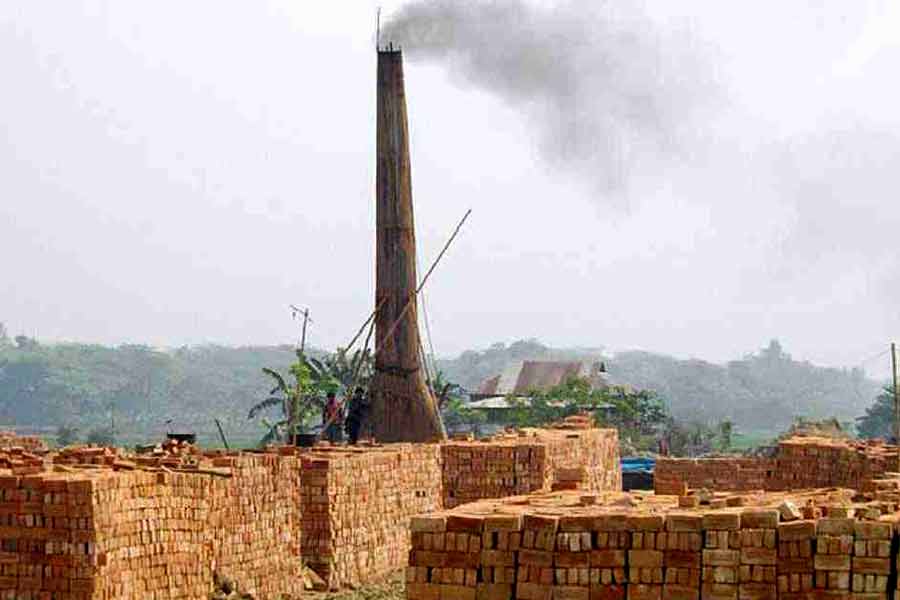
Published :
Updated :

Most of the brick kilns operating across the country still use firewood as fuel in violation of law, adversely affecting the environment, according to a latest ACC report.
The Anti-Corruption Commission (ACC) in its annual report 2022 also found that many brick kilns have been set up in areas prohibited by law.
Yet, licences are issued to them, although inexplicably, by the authorities concerned, finds the ACC enquiry report. Cashing in on the license, the unscrupulous brick manufacturers continue making bricks in a traditional way and thus cause environmental damage to a great extent, it stated.
Even questions can be raised about activities of the inspection teams responsible for overseeing the matter. In many cases, members of the teams deliberately avoid mentioning irregularities in their reports to make personal financial gains, observed the ACC report.
Very recently, Minister of Environment, Forests and Climate Change Shahab Uddin disclosed that the total number of brick kilns in the country stood at 7,881 until June 2022. Nearly 41.2 per cent of the kilns are running legally while about 58.8 per cent are operating unlawfully.
Brick kilns obtain licences and environmental clearances in line with the Brick Manufacturing and Brick Kilns Establishment (Control) Act, 2013 and the Bangladesh Environment Conservation (Amendment) Act, 2010. However, taking advantage of the loopholes of these Acts, some owners maintain illegal brick kilns while showing them as factories for producing concrete or compressed blocks.
But in reality, they make bricks in a traditional way by using soil collected from agricultural land, hills, ponds, pastures and fallow areas, said the ACC report.
Md Ziaul Haque, director (air quality management wing) of the Department of Environment (DoE), however, claimed that very few brick kilns are now using firewood to make bricks. In line with findings of the ACC report, Mr Haque said there is no denying that some brick manufacturers are indeed violating the relevant laws.
In this regard, he sought help from deputy commissioners (DCs) and upazila nirbahi officers (UNOs) to curb the environmental pollution as these two authorities issue licences to brick manufacturers as per the Brick Manufacturing and Brick Kilns Establishment (Control) Act, 2013.
The DoE is facing a shortage of manpower, logistics and budget which in turn hinders monitoring and other enforcement activities, Haque stated.
Comprehensive survey should be conducted soon to detect the errant brick makers and to bring them under law, he suggested. DoE conducted the last survey in 2018.
Meanwhile, IPD Executive Director Prof Adil Mohammed Khan said the DoE's measures to mitigate the environmental damage and promote eco-friendly brick manufacturing in the country are not enough.
The government's target to help reduce pollution is also not praiseworthy as it is reaching its goal at a snail's pace, Khan argued.
Blaming the persistent air pollution in every district, including Dhaka, due to mainly traditional brick kilns, he urged the government to enhance its efforts significantly and use eco-friendly bricks in its own development projects.
Prof Adil recommended that the government incentivise the eco-friendly brick makers or block makers to boost their growth.
sajibur@gmail.com


 For all latest news, follow The Financial Express Google News channel.
For all latest news, follow The Financial Express Google News channel.